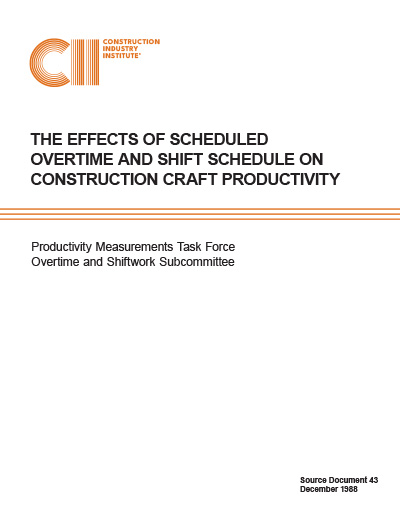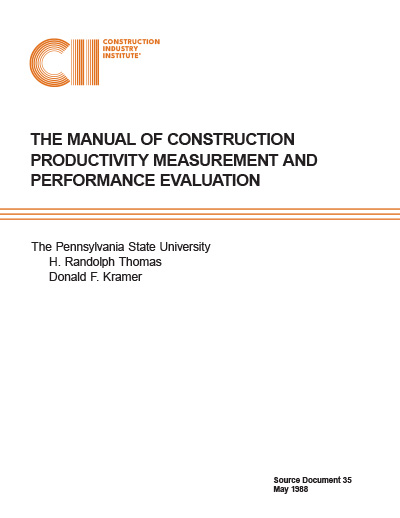
The Effects of Scheduled Overtime and Shift Schedule on Construction Craft Productivity
Overtime in construction is usually defined as work performed over 40 hours per week, or in some instances, more than eight hours in one day. The construction industry has attempted to minimize scheduled overtime on most projects because it significantly increases the cost of construction. However, if an owner/contractor has to recover lost time or accelerates construction for any other reason, three basic alternatives exist: increase manpower, add shiftwork, or schedule overtime. Unfortunately, past studies generally have been inconclusive in quantifying the effect these options have on productivity.
On certain occasions, overtime is also employed to attract and retain labor. Overtime is not employed here to recover lost time, but may simply provide a financial incentive to craftsmen. Such projects are often differentiated from schedule recovery projects by the fact that the amount of overtime is usually fixed over the life of the job.



